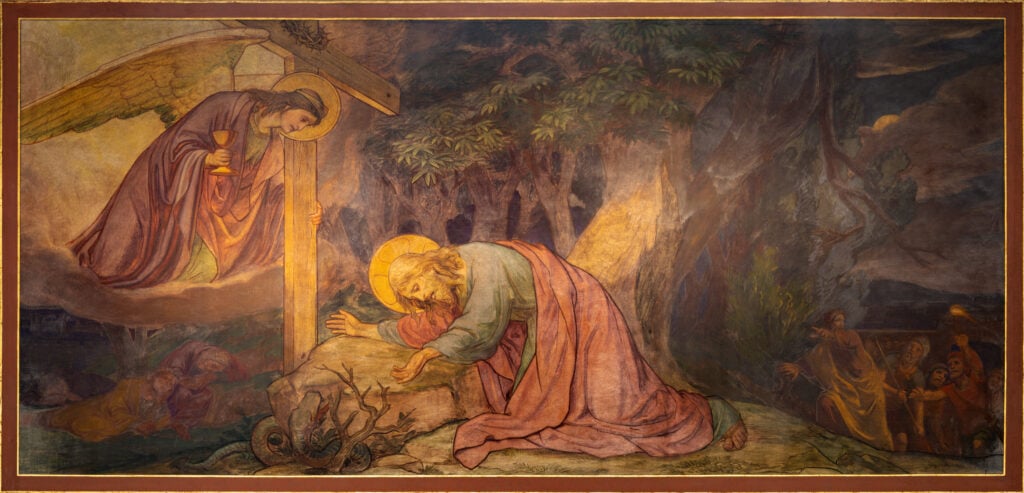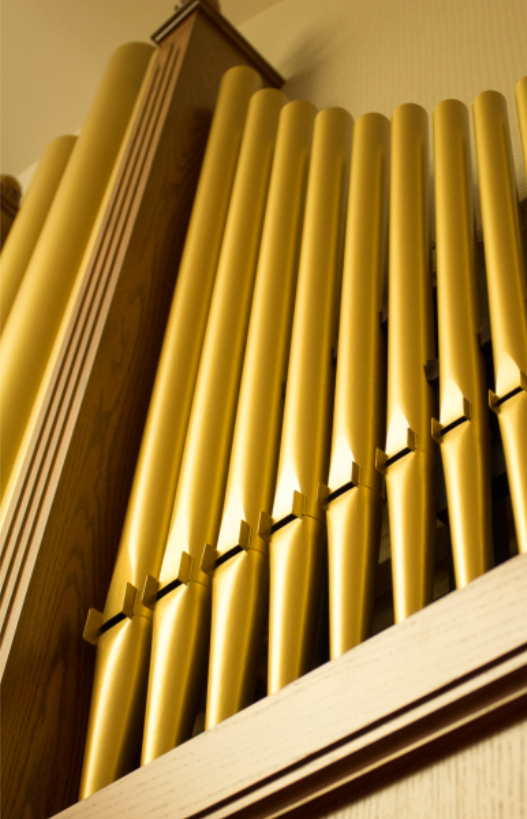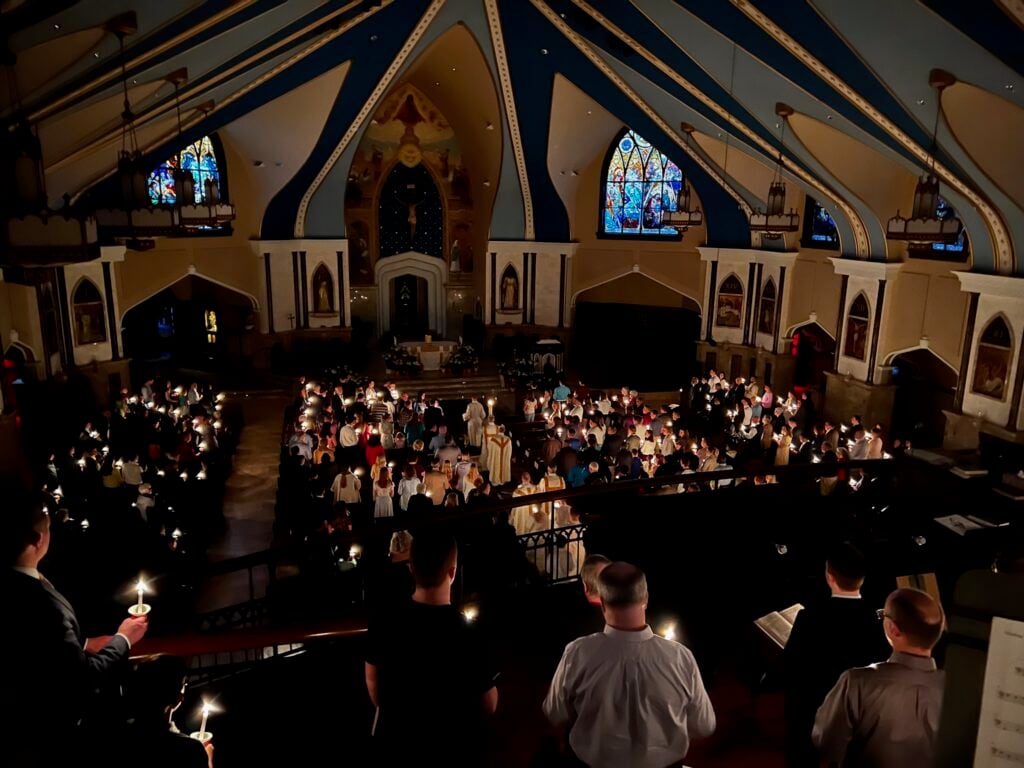As part of our efforts to deepen prayer at Sts. Anne and Joachim, we’ve added to our adoration library, and hope to do a series of book reviews on some of the texts available there. This first review is of Fr. Henri Nouwen’s most popular work, The Return of the Prodigal Son, published for the first time in 1992.

What greater joy can there be for me than to stretch out my tired arms and let my hands rest in a blessing on the shoulders of my homecoming children?
The Return of the Prodigal Son, page 133
Fr. Henri Nouwen’s The Return of the Prodigal Son is one of my favorite non-fiction books. On a chance encounter with a reprint of the Rembrandt painting posted on the door of a friend, Fr. Nouwen’s fascination with the beauty of the image and its revelation of the love of God lead him on a spiritual journey deepening his own understanding of his migration from being the younger son, to the elder son, and eventually fulfilling his role as the father of the sons, an image of our Heavenly Father.
The book itself goes through three movements, a reflection on the prodigal son through the eyes of both the original artist and through Fr. Nouwen. Our leaving of home is a radical rejection of God, a “denial of the spiritual reality that I belong to God with every part of my being” (page 38). As part of our return to God as the younger son, a great challenge is to receive the forgiveness of God. “There is something in us humans that keeps us clinging to our sins and prevents us from letting God erase our past and offer us a completely new beginning. Sometimes it even seems as though I want to prove to God that my darkness is too great to overcome” (page 53). We live in the fear of being loved as we truly are, and prefer the life of a servant than of a son.
Sometimes it even seems as though I want to prove to God that my darkness is too great to overcome.
The Return of the Prodigal Son, page 53
After his prayerful consideration of the younger son, Fr. Nouwen turns his attention to the elder son. In addition to the part we play as younger sons, we also need to recognize our temptation to be the elder son: resentful, bitter, and angry. The elder son looks at the younger son with jealousy; “why can I not have the things of the world!” he exclaims. The elder son, just like the younger son, needs his own return to his father, to be purified of his own self-righteousness and rivalry and to truly embrace the father.
Fr. Nouwen completes his prayerful reflection with his thoughts on the father of the parable. The father, whose heart is calling out to both the younger son and the elder son, desires them both to return home.
In our own journey through this parable, we are not called to be the younger son or the elder son, but to pass through both of those in our life to truly live the love of the father. As Fr. Nouwen writes: “Rembrandt’s painting and his own tragic life have offered me a context in which to discover that the final stage of the spiritual life is to so fully let go of all fear of the Father that it becomes possible to be like him” (page 120).
Having lived my sonship to its fullest, the time has come to step over all barriers and claim the truth that becoming the old man in front of me is all I really desire for myself.
The Return of the Prodigal Son, page 123
Fr. Nouwen concludes his reflection on the father seeing the true compassion of the father in grief, forgiveness, and generosity. We grieve when we see the world broken as it is, and allow it to pierce the very heart of sorrow that we are called to have. Forgiveness “comes from a heart that does not demand anything for itself, a heart that is completely empty of self-seeking” (page 129). And finally, generosity, seeing that both sons are for the father absolutely everything in his life, and his own longing to pour out his full being for them. Fr. Nouwen concludes that “the real joy and real fulfillment can only come from welcoming home those who have been hurt and wounded on their life’s journey, and loving them with a love that neither asks nor expects anything in return” (page 132).
...the real joy and real fulfillment can only come from welcoming home those who have been hurt and wounded on their life's journey, and loving them with a love that neither asks nor expects anything in return.
The Return of the Prodigal Son, page 132
The Return of the Prodigal Son is a great book as we reflect on our own journey of life, seeing ourselves in the characters of the parable, and recognizing the call for our hearts to reflect the love of our Heavenly Father.




